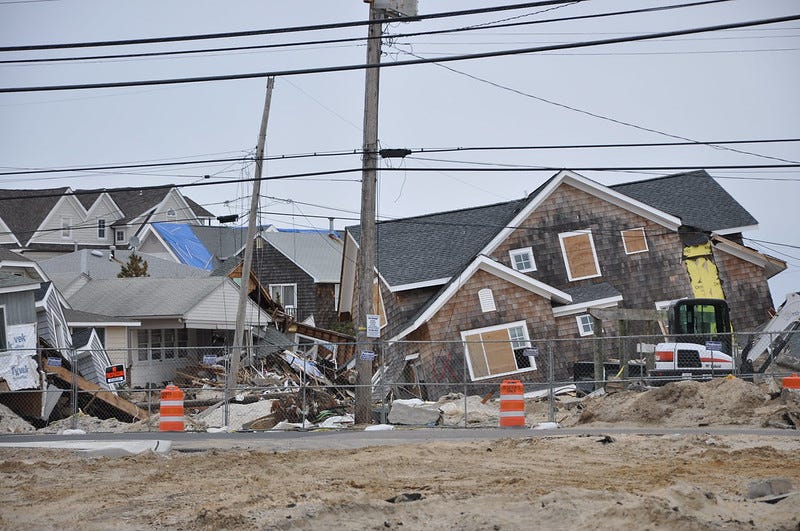Insurers hit hard by extreme heat in Europe, U.S.
Welcome to Callaway Climate Insights. We’ve extended our 40% off July sale for our great journalism one more day. Act now and tell a colleague.
Today’s edition of Callaway Climate Insights is free for all our readers. We really want to bring you the best and latest in climate finance from around the world. But we need your support. So, we’re extending our summer sale one more day. Sign up today and get 40% off the annual subscription rate!

LONDON (Callaway Climate Insights) — Greetings from London, where we arrived this week to Miami-like sunshine and a high-80s heatwave, part of the new normal in a city that never used to see a need for air conditioners. Across the channel, in Paris, Olympic athletes are enduring a third day close to 100°F and a run on AC units in the athlete’s village after complaints the vaunted self-cooling apartments failed to satisfy.
In Rome, authorities are blaming several days of heat above 95°F for conditions leading to a small wildfire that started on one of the city’s hills this week and caused evacuations of the nearby court of justice and a TV broadcasting center. Each a separate horror story but they all add up.
Global insurers had more than $120 billion in insured losses in the first half of this year, more than half of which was in the U.S., according to Munich Re. According to the reinsurer, that’s 70% above the 10-year average. More on the impact in the U.S. in our insights below.
Most of it was caused by extreme heat leading to conditions that caused wildfires or blackouts in Europe and western North American, as well as flooding in odd places such as Dubai. With summer only half over in the Northern Hemisphere, and the worst of wildfire and hurricane seasons still ahead, there’s little expectation that the record run will stop in the second half of the year.
On the lighter side, Olympic officials finally allowed swimming events in the Seine on Wednesday, after delaying all the training sessions and the men’s triathlon the day before because of high pollution levels from last week’s rain. Both men and women dove in for the first sanctioned swimming in the polluted river in 100 years.
Early swimmer reviews differed on how the water tasted, but all seemed to agree it was uncomfortably brown.
As for us, we’ll be on our annual summer break for the next two weeks. We’ll be back in your inbox on Aug. 19. Enjoy the summer, stay safe.
Don’t forget to contact me directly if you have suggestions or ideas at dcallaway@callawayclimateinsights.com.
Follow us . . . .
Twitter | LinkedIn | Facebook | Instagram
Mexico’s first woman president is pro-climate

. . . . Mexico’s President-elect Claudia Sheinbaum is the latest in a line of women scientists — including Margaret Thatcher and Angela Merkel — who rose to lead their countries and sounded the alarms about climate change, writes Michael Molinski. But the world is a different place now, and when Sheinbaum takes over in October how she manages her climate pledge of $13 billion in new renewable investments with the country’s rich oil heritage is a topic front and center for the global climate community. . . .
Thursday’s subscriber insights
U.S. home insurance losses worse than anybody thought
. . . . It’s no secret that insurance companies in parts of the U.S. have been getting killed for some time. Wildfires, floods and intense storms have forced many of them, such as State Farm and Allstate, to severely restrict new home policies in states such as Texas, Florida and California, bundling the states with the burdens and potential financial crisis.
Earlier this week, insurance credit rating agency AM Best put a number on it, saying U.S. home insurers lost $15.2 billion last year, more than double what they lost in 2022 and the sixth year of losses in the last seven.
The spike in extreme heat and violent storms since 2017 has exactly matched the pattern of losses and this year is supposed to be the worst yet. Hundreds of wildfires and the potential for a devastating hurricane season are lining up to be a major threat.
We’ve long argued that the first financial effects on the public would be felt through the insurance markets. The next step will be state finances and municipal markets.
Climate risk is investment risk. These numbers portend some eye-popping numbers to come.
Battery startup shuts down just as renewable energy hits its stride
. . . . Life in the climate startup lane. Just as California reports a milestone in its renewable energy efforts with more than 100 days of consistent battery, solar or wind power usage on its electric grid (in part because of the winds that have driven a lot of the wildfires), a popular battery storage startup abruptly shut its doors this week
Moxion Power, which furloughed much of its staff two weeks ago and already burned through $110 million in funding, told the remaining 284 staff this week that it was closing, according to SF Gate.
The rising interest rate era has been devastating to startups reliant on borrowing and venture capital investments. As the Federal Reserve delays a rate cut for another six weeks at least, the pain of that inaction is being felt at the business and human levels.
Moxion reportedly said in a state filing that it was unable to secure more funding. Renewable energy startups are often reliant on borrowings to pay for equipment for solar, wind and battery work.
The sooner the Fed starts cutting rates, the better for the renewables business.
Editor’s picks: The heat is on; plus, first green exchange in the U.S. emerges
Watch the video: The warming Earth just sizzled through a week with four of the hottest days ever measured. People across the world suffered how the warmth just wouldn’t fade away at night. Scientists are concerned about the heat records, turbocharged by climate change. The Associated Press reports in Earth’s temperatures soar to record highs.
New exchange for green stocks
The Green Impact Exchange (GIX) says it has filed an application with the Securities and Exchange Commission seeking approval as the first stock market in the U.S. dedicated to the emerging $50+ trillion global green economy. The company said in a recent news release that GIX will list companies that make a binding commitment to set, implement, measure, and achieve sustainability goals, and be transparent with investors about their progress. Companies that want to be recognized for their commitment to sustainability can dually list on GIX without giving up their primary listing exchange. “Today’s filing is a major step forward for sustainable investors and capital markets,” said GIX CEO and cofounder Dan Labovitz. “GIX will connect investors who care about sustainability with companies that are credibly committed to becoming and being sustainable.”
Latest findings: New research, studies and projects
The carbon footprint of a hamburger
Food production represents a complex sustainability challenge, notably in terms of climate change and freshwater use, say the authors of a recent research paper titled, “The Water Footprint and Carbon Footprint of a Burger and its Analogues of Plant Origin.” From the abstract: To promote the incorporation of sustainable prepared meat dishes into the agrifood market, the present project aims to assess the environmental performance of three different burgers — a beef burger, a plant-based burger, and a hybrid burger — by comparing the water use and the CO₂ emissions relative to their nutritional value. Find out which one is more sustainable. Authors: Paula Domínguez-Lacueva; María José Beriain; Maite M. Aldaya, Public University of Navarre.
More of the latest research:
How Development Policy and Sea Level Rise are Eroding Coastal Ecosystems in the U.S.
The Role of Disaster Relief Policy in Building Resilient Coastal Regions in the U.S.

Words to live by . . . .
“You can’t put a limit on anything. The more you dream, the farther you get.” — Michael Phelps, the most successful and most decorated Olympian, with a total of 28 medals.



